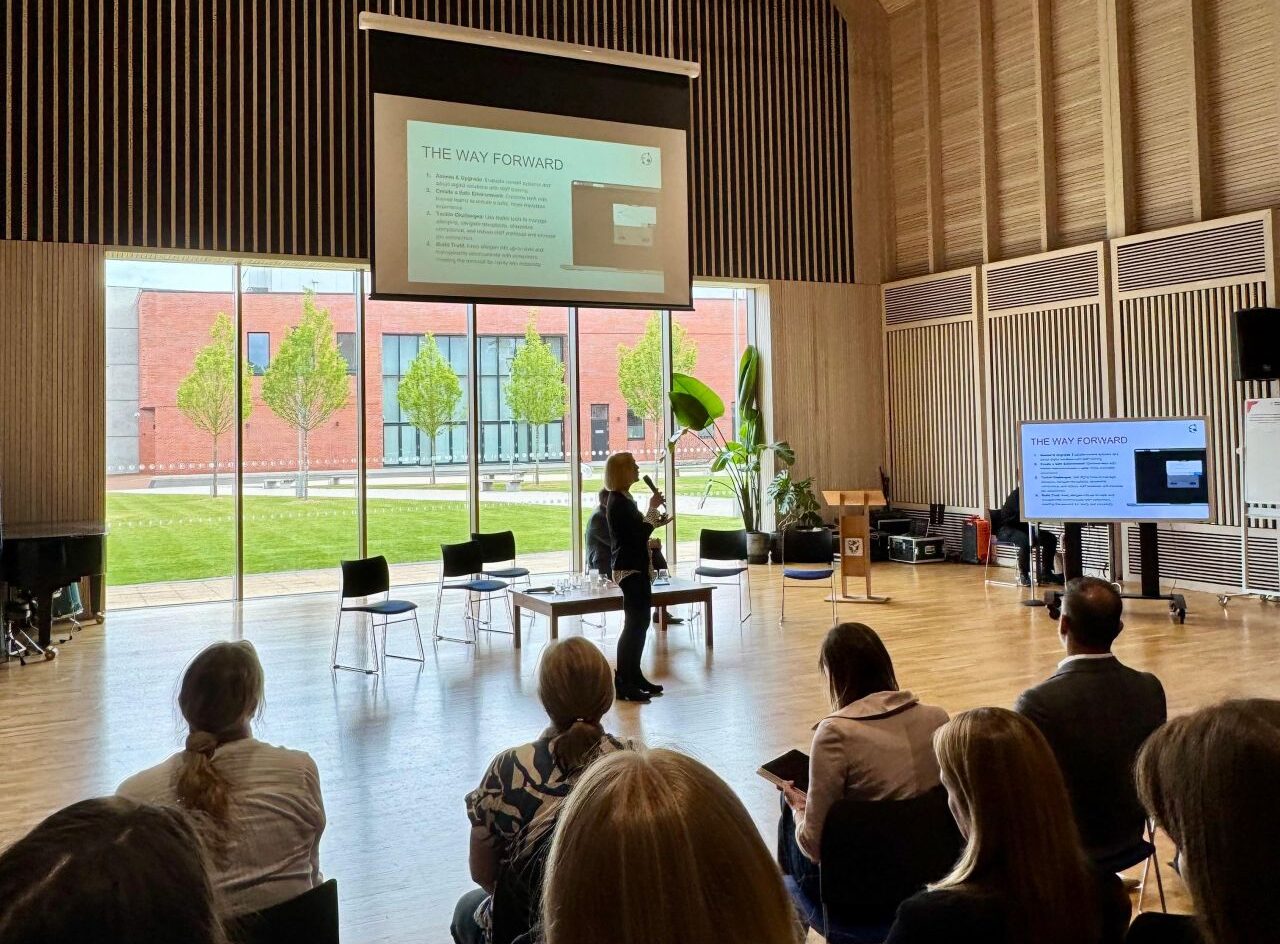Every 40 minutes, there is a UK hospitalisation due a food allergy. Behind that statistic are real people – customers who place their trust in hospitality venues to not just serve great food, but to keep them safe.
That responsibility has never been more pressing.
Food allergies are on the rise, expectations are shifting, and the regulatory landscape continues to evolve. In this environment, the ability to deliver clear, consistent allergen management is critical.
At Nutritics we are passionate about supporting the hospitality industry in navigating this ever-evolving space. It’s this shared responsibility that made it so important for us to be headline partners of this year’s Allergen Management in the Food Industry Conference.
The day brought together leading voices from across food service, science, and consumer advocacy, all focused on one shared goal: how we can work together to reduce allergen risk and build trust with every guest. Our own Frankie Douglas, Director of Scientific and Regulatory Affairs at Nutritics, joined the conversation to explore what inclusive foodservice really looks like, and how data can play a part in building trust.
We left the event with plenty to think about. Here are some of the key takeaways worth sharing.
Training and expertise are the foundation of business
Dr Francesca Sawer, Clinical Psychologist in allergy kicked off the day by discussing how psychology can be used to understand the consumer journey. A key correlation for all venues to take note of is how staff anxiety around serving those with an allergy can undermine guest confidence and lead to poor consumer experience.
A staff members’ words and body language can have a huge impact on consumer anxiety. A confused look or questions such as ‘is this an allergy or preference’, and ‘are you okay with traces?’ can cause mistrust or assumed lack of knowledge. Staff need to be specific and confident in the venue’s allergen policy, enabling a level of transparency with guests that builds trust. This is where knowledge and training are key.
Evolving expectations and regulation
The positive news is that the UK hospitality industry is making progress with allergen management. Despite this, with the number of food allergies nearly doubling between 2008 and 2018, the landscape continues to evolve. This year, for example, the FSA published new implementation guidance, highlighting the ongoing need for adaptation and continuous improvement across the industry.
Nutritics’ Director of Scientific and Regulatory Affairs, Frankie Douglas, provided insights around consumers and their increased expectation for sustainable and plant-based dishes. With this rising expectation comes a new challenge, as plant-based proteins can often be misleading for those with an allergy. In reality, ‘vegan’ does not always mean suitable for those with an egg or milk-free allergy – so in this ever-evolving space, building trust and delivering effectively against that is an important factor in building loyalty.
Transparency and traceability build trust
Sterling Crew, President of the Institute of Food Science and Technology, gave some fantastic guidance on what the key factors are to successful allergy management. A clear mission, good staff, consistency, adaptability, training and awareness of risks are all up there in terms of priorities for a successful hospitality venue. As well as transparency.
The first step to enable transparency is to get an allergy policy in place and make it clearly accessible to staff and the public. Allergen management can’t be (just) a top-down initiative, it needs to be alive in hospitality venues with a sense of ownership amongst the staff that implement it on a day-to-day basis.
Earlier we learnt during Dr Francesca Sawer’s presentation that those with allergies tend to find a trusted venue and dish and stick with it, as there can be a nervousness around visiting new venues – so positioning yourself as a trusted authority in the allergen space can drive sustained business growth and establish a lasting competitive advantage.
And how do we do that? Sterling outlined that when it comes to building trust, food data can be leveraged as a tool to support transparency and with traceability. Providing this information to consumers ensures not only that they have the freedom to make informed decisions, but also builds that trust.
Be Inclusive
Building on the discussion around effectively communicating with customers, we heard from Dominic Jones, Owner at JPRestaurants and Liljia Polo-Richards, Founder of Allergy Companions, who emphasised compassion and care as central to protecting the integrity of a venue. Inclusivity is a hot topic and must also be at the heart of how we deliver allergen information.
Serving safety and leading change
After a day of insightful presentations, there was no mistaking just how important it is for the industry to get actionable support in managing allergens. Clearly, it is not just about ticking boxes; it is vital hospitality venues receive guidance to help them take accountability, develop their staff, and deliver effectively. Managing food allergens protects lives as well as the integrity of a hospitality business.
You can read more insights from Frankie in her recent article with The Staff Canteen: Allergy Awareness Month: Serving trust, not just food.
- Calculated from NHS Digital data files available at: https://digital.nhs.uk/supplementary-information/2024/hospital-admissions-for-allergic-reactions/, 2024
- Food allergy doubles in the UK over last decade but many still without treatment, 2024
- You can read more insights from Frankie in her recent article with The Staff Canteen: Allergy Awareness Month: Serving trust, not just food.
